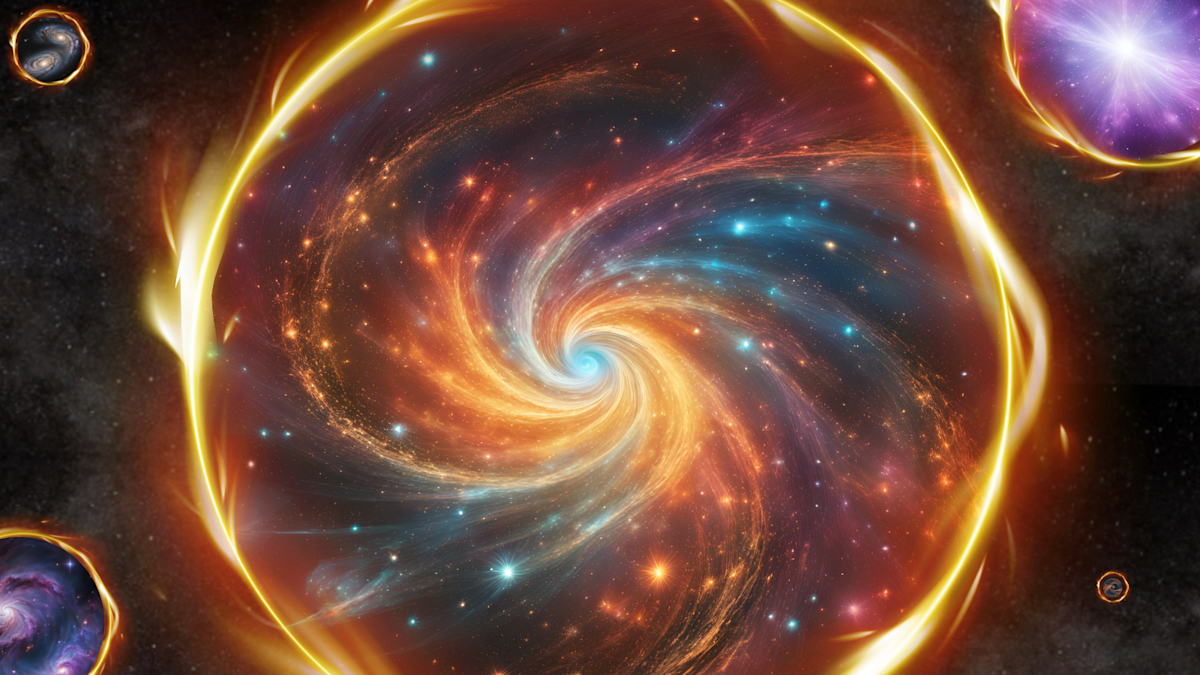NEW HAVEN, CT – The universe may be spinning, potentially unraveling the enigma of dark energy and suggesting our place in a multiverse, according to groundbreaking research by Polish theoretical physicist Nikodem Poplawski.
Immediate Impact of a Rotating Universe
Recent findings from the James Webb Space Telescope (JWST) reveal that two-thirds of galaxies rotate in the same direction, hinting at a cosmic rotation. This supports Poplawski’s theory that our universe’s rotation could be the key to understanding dark energy, a mysterious force driving the universe’s accelerated expansion.
“Dark energy is one of the most intriguing mysteries of the universe,” Poplawski told Space.com. “It would be amazing if a simple rotation of the universe was the origin of dark energy, especially that it predicts its weakening.”
Key Details Emerge on Cosmic Rotation
The JWST’s data suggests a lack of randomness in galactic rotation, aligning with Poplawski’s hypothesis. Additionally, the angle between the axis of spinning galaxies and nearby galaxy clusters is nearly perpendicular, further supporting the idea of a rotating universe.
Frames of Reference and the Multiverse
Poplawski explains that a rotating universe implies the existence of other universes. By examining frames of reference, he posits that our universe’s rotation must relate to something larger, suggesting a multiverse.
“If the universe is rotating, it must rotate relative to some frame of reference corresponding to something bigger,” he continued. “Therefore, the universe is not the only one; it is a part of a multiverse.”
Black Hole Cosmology: A Universe Within
Poplawski’s black hole cosmology theory suggests that each black hole creates a new universe, with the rotational axis inherited from its parent black hole. This could explain the preferred rotational direction observed in our universe.
“A black hole becomes an Einstein-Rosen bridge or a ‘wormhole’ from the parent universe to the baby universe,” Poplawski explained.
Dark Energy Puts Scientists in a Spin
Dark energy, which accounts for 68% of the universe’s matter-energy budget, is believed to cause the universe’s accelerating expansion. However, data from the Dark Energy Spectroscopic Instrument (DESI) indicates that dark energy may be weakening, challenging the standard cosmological model.
“Dark energy would emerge from the centrifugal force in the rotating universe on large scales,” Poplawski noted.
By the Numbers
- Dark energy accounts for 68% of the universe’s matter-energy budget.
- Recent DESI observations suggest dark energy is weakening.
- The universe’s expansion began accelerating around 9 billion years after the Big Bang.
What Comes Next
To validate Poplawski’s theory, more data on galaxy cluster flows and rotational asymmetry is needed. Additionally, further understanding of dark energy’s dependence on cosmic distances and time will help confirm whether its weakening aligns with a decreasing angular velocity of the universe.
“The next step is to determine the equation describing how the cosmological constant, generated by the angular velocity of the universe, decreases with time,” Poplawski concluded. “This research might involve searching for the metric describing an expanding and rotating universe.”
A pre-peer-reviewed version of Poplawski’s research is available on arXiv, offering a glimpse into the potential future of cosmological discoveries.
